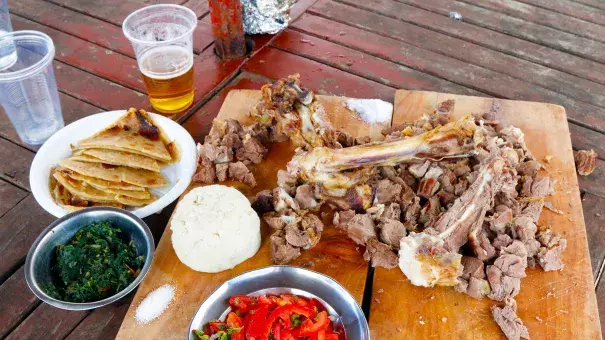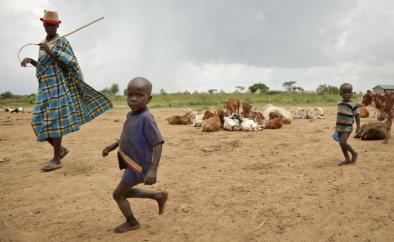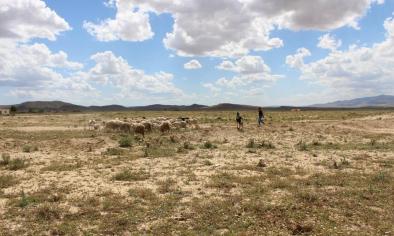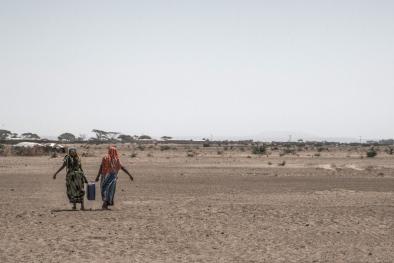How climate change is ruining delicious goat meat

Goat meat is not something Americans tend to feast on, but in many other countries, it's a common delicacy. Traveling journalist Tim McDonnell (a former Mother Jones staffer) went on the hunt for the best version of the dish in Kenya, where grilled goat "brings everyone together." We talked to him about the search for the best goat meat on episode 25 of our food politics podcast, Bite (story starts at 1:20).
McDonnell wrote more about Kenyans' penchant for the meat for National Geographic:
Kiswahili for "grilled goat," nyama choma is Kenya's unofficial national dish, and can be found at innumerable “choma zones” that appear along every major road, in hotels, back alleys, and anywhere else with enough space for a grill and a few seats. Served family-style and torn into with bare hands, it's a great equalizer, enjoyed by peasants and princes, silk-tied Nairobi businessmen with rolled-up sleeves and bare-chested Samburu cattle-herders in the remote northern desert.
But changing climatic conditions in the country means goat-herders are having to travel further to find drinking water for their animals. The resulting goat meat is less tasty, says Chege Waruingi, owner of Olepolos Country Club restaurant; customers have pointed out to him that their favorite nyama choma tastes tougher these days. McDonnell writes:
Rainfall was below-average across much of Kenya this year, as it has been for the last few years. The drought was so bad in the region around Olepolos that Waruingi's well ran dry for the first time, and he has had to begin trucking water in; the weekend I visited he spent more than $240 on it. When water is scarce, goats have to walk long distances to find it, and well-traveled goats make for unappetizing meat. This has never been a problem for him before.
Related Content






